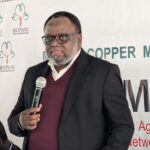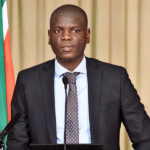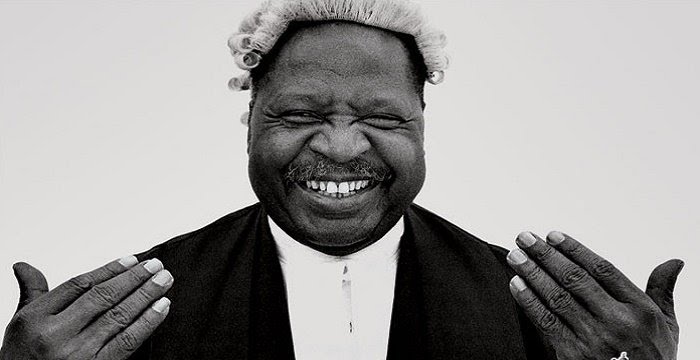Mainza Chona, a pivotal figure in Zambia’s history, served as the country’s first Prime Minister after gaining independence in 1964. His leadership during the early years of nationhood and his subsequent roles in government and diplomacy have left a lasting impact on Zambia. Here are 20 key facts about Mainza Chona that highlight his contributions and legacy.
1. Birth and Early Life
Mainza Mathias Chona was born on January 21, 1930, in Nampeyo, a small village in Zambia’s Southern Province. His early life in rural Zambia shaped his understanding of the challenges faced by the ordinary citizens of the country.
2. Education and Legal Training
Chona was among the first Zambians to receive a formal education. He attended Munali Secondary School in Lusaka, later moving to the UK, where he earned a law degree from Gray’s Inn, London, becoming one of Zambia’s earliest trained lawyers.
3. Role in Independence Movement
Chona was actively involved in the Zambian independence movement. He was a member of the United National Independence Party (UNIP), where he worked alongside other prominent leaders like Kenneth Kaunda to advocate for Zambia’s independence from British colonial rule.
4. First Prime Minister of Zambia
In 1964, when Zambia gained its independence, Chona was appointed the country’s first Prime Minister. He held this position until 1967, serving as a key figure in the early years of Zambia’s nationhood.
5. Relationship with Kenneth Kaunda
Chona was a close ally of Kenneth Kaunda, Zambia’s first President. Their relationship was instrumental in shaping the policies of the newly independent nation. Chona’s loyalty and legal expertise were critical assets to Kaunda.
6. Diplomatic Roles
After serving as Prime Minister, Chona held several diplomatic positions. He was Zambia’s High Commissioner to the United Kingdom, where he continued to represent Zambian interests abroad, fostering international relations.
7. Role in One-Party State Formation
Chona played a pivotal role in the formation of Zambia’s one-party state. In 1972, he authored the Chona Commission Report, which recommended the establishment of a one-party system, a move that was implemented under Kaunda’s leadership.
8. Second Term as Prime Minister
Chona served a second term as Zambia’s Prime Minister from 1973 to 1975. His return to this role highlighted his enduring influence in Zambian politics and his ability to navigate the complexities of governance during a turbulent time.
9. Vice President of Zambia
In 1970, Chona was appointed as Vice President, further cementing his role as one of the most significant political figures in Zambia. He was instrumental in advising the president and implementing government policies.
10. Legal Reforms and Contributions
As a lawyer and politician, Chona contributed significantly to the legal framework of Zambia. His expertise was vital in drafting the country’s early laws and setting up its judicial system.
11. Advocating for Education
Throughout his career, Chona was a strong advocate for education. He believed that educating the Zambian populace was essential for the country’s development and worked to improve access to education during his time in government.
12. Chona Commission
The Chona Commission was a critical moment in Zambian history, as it set the stage for the transition to a one-party state. The commission’s recommendations reflected Chona’s belief in strong centralized governance.
13. Contributions to Zambia’s Foreign Policy
Chona was instrumental in shaping Zambia’s foreign policy, particularly in maintaining non-aligned status during the Cold War. His diplomatic skills helped Zambia navigate complex international relations.
14. Later Life and Retirement
After retiring from active politics, Chona continued to influence Zambian society through his legal practice and public speaking. He remained a respected elder statesman until his death.
15. Advocacy for Human Rights
Chona was known for his advocacy for human rights, both during his time in office and after. He believed in the importance of justice and fairness, values he promoted throughout his career.
16. Cultural Heritage
Chona was proud of his Tonga heritage and worked to promote and preserve Zambian culture. He believed that understanding and celebrating cultural diversity was key to national unity.
17. Family Life
Chona was a family man, married to Yolanta Chona, with whom he had several children. His family remained a central part of his life, even as he navigated the complexities of political life.
18. Recognition and Honors
Throughout his life, Chona received numerous awards and honors for his service to Zambia. His contributions to the nation’s independence and development were widely recognized.
19. Legacy
Mainza Chona’s legacy is one of dedication to his country and its people. He is remembered as a founding father of Zambia, whose efforts helped shape the nation during its formative years.
20. Passing and Remembrance
Mainza Chona passed away on December 11, 2001, leaving behind a legacy of service and commitment to Zambia. His contributions to the country are remembered and celebrated as part of Zambia’s rich history.
In conclusion, Mainza Chona’s life and career were marked by a deep commitment to his country and its development. As Zambia’s first Prime Minister, he played a crucial role in shaping the nation during its early years of independence. His dedication to education, legal reform, and human rights, along with his efforts to promote Zambian culture, continue to resonate in the country today. Chona’s legacy as a founding father of Zambia will be cherished for generations to come.






